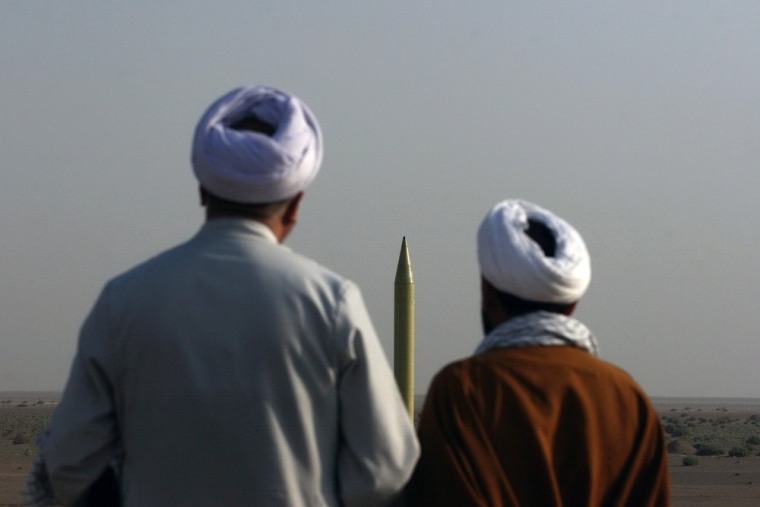A senior Iranian Revolutionary Guard commander claimed on Tuesday that his country has the ability to produce missiles with an even greater range than those currently in its arsenal.
But Amir Ali Hajizadeh, commander of the Guard's Aerospace Force, stressed that Tehran will not manufacture such missiles because Israel and U.S. bases in the Gulf are already within reach.
The remarks came as Iran conducted a second day of large-scale military maneuvers, part of 10 days of war games that are the country's latest show of force amid a standoff with the West over Iran's disputed nuclear program.
Hajizadeh said Tehran's arsenal already boasts missiles with a range of about 1,250 miles (2,000 kilometers) that were specifically designed for Israel and U.S. targets. The two missiles in Iran's possession that have such a range are the Shahab-3 and the Sajjil.
"There is no threat from any country to us other than the U.S. and the Zionist regime," Hajizadeh was quoted as saying by the semiofficial Fars news agency. "The range of our missiles has been designed on the basis of the distance to the Zionist regime and the U.S. bases in the Persian Gulf region."
Hajizadeh said Iran "possesses the technology" to manufacture missiles with a range greater than 1,250 miles, but said "we have no intention to produce such missiles." He did not elaborate.
In Israel, Foreign Ministry spokesman Yigal Palmor denounced Hajizadeh's remarks.
"This new Iranian bragging demonstrates once again the aggressive policies of the ayatollahs' regime," Palmor said. "Not that we had any doubts prior to this statement. But this renewed threat makes it obvious why Iran is the No. 1 threat to this whole region and beyond."
Western intelligence reports say Iran is seeking to acquire the capability to produce intercontinental missiles with a range of up to 3,750 miles (6,000 kilometers), a claim Iran has denied.
Close target
Hajizadeh said some U.S. bases in Iraq and Afghanistan are as close as 75 miles (120 kilometers) from Iran's borders and can easily be hit by Iran in case of an attack.
The Revolutionary Guard, which is in charge of Iran's missile program, kicked off the war games on Monday by unveiling an underground smart missile silos, claiming that medium- and long-range missiles stored in them are ready to launch if Iran was attacked.
The silos are widely viewed as a strategic asset for Iran in the event of a U.S. or Israeli strike on its nuclear facilities.
As part of the 10-days of military exercises, Iran on Tuesday also fired 14 missiles, including Shahab-1, Shahab-2 and Shahab-3 as well as Zelzal missile.
The Iranian-made surface-to-surface missiles, with a maximum range of 2,000 km (1,250 miles), were fired simultaneously at a single target, the official IRNA news agency reported.
Iran remains locked in a standoff with the West over its nuclear program, which the U.S. and its allies suspect is aimed at developing atomic weapons. Iran rejects the charges, and says the program is only for peaceful purposes.
'Source of delight'
Foreign Ministry spokesman Ramin Mehmanparast said Iran's military capability was for purely defensive purposes but the country is happy if its show of strength rattles the West.
"The westerners' concern is a source of delight for us, because we will not allow any country to have a greedy approach towards our country's interests and territorial integrity," Mehmanparast said.
"If all the regional states had the highest defensive capability the Zionist regime would have never allowed itself to carry out an act of aggression."
Mehmanparast also urged Russia to make good on a delivery of S-300 surface-to-air missiles to Iran.
"This missile system is for defensive purposes, therefore, it is not included in the illegal sanctions ... We are expecting Russia to follow up the bilateral commitments more seriously."
Moscow unilaterally suspended the delivery of S-300s after the United States and Israel expressed concern that Iran could use the anti-aircraft missiles to shield its nuclear facilities.
